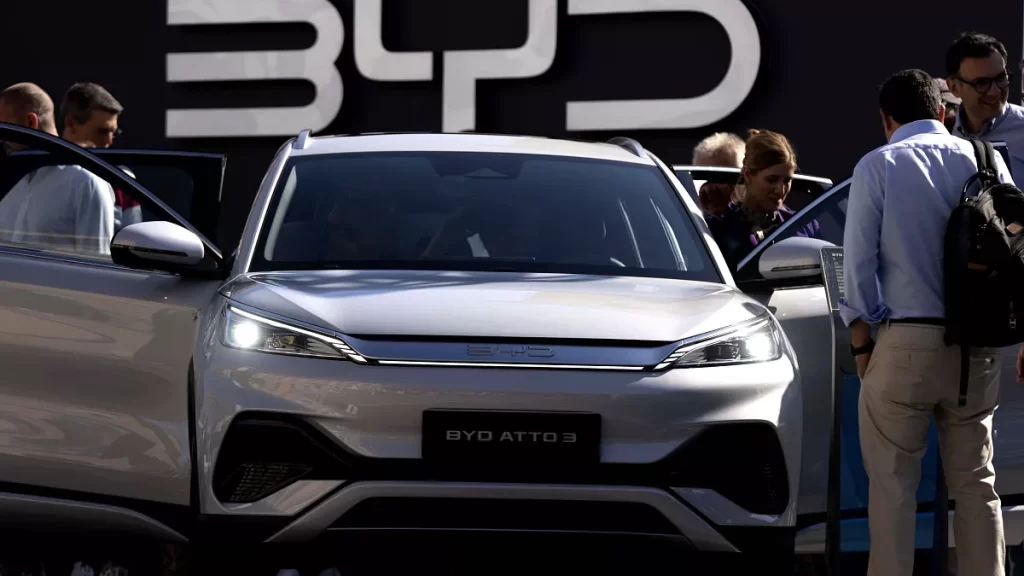Canada Imposes 100% Tariff on Chinese Electric Vehicles Amid Global Trade Tensions
3 min read

Canada has announced it will implement a 100% tariff on imports of electric vehicles (EVs) made in China, following similar measures by the United States and the European Union. The new tariffs, which will come into effect on October 1, 2024, are part of a broader strategy to address trade imbalances and protect the domestic automotive industry. In addition to the EV tariffs, Canada plans to levy a 25% duty on Chinese steel and aluminum starting October 15, 2024.
The Canadian government, along with its Western allies, accuses China of unfairly subsidizing its EV industry, which they argue gives Chinese manufacturers an undue competitive advantage in the global market. Canadian Prime Minister Justin Trudeau criticized China’s practices, stating, “We are transforming Canada’s automotive sector to be a global leader in building the vehicles of tomorrow, but actors like China have chosen to give themselves an unfair advantage in the global marketplace.”
China has responded strongly to Canada’s tariff decision, labeling it as “trade protectionism” that violates World Trade Organization (WTO) rules. A spokesperson from the Chinese Commerce Ministry expressed concern that Canada’s actions “seriously undermine the global economic system, and economic and trade rules,” and urged Canada to “immediately correct its erroneous practices.”
China, which is Canada’s second-largest trading partner after the United States, faces significant repercussions from these tariffs. The tariffs will affect various Chinese-made EVs, including those produced by Tesla at its Shanghai factory. Tesla, a major player in the global electric vehicle market, is expected to seek exemptions or adjustments to these tariffs. Industry analyst Mark Rainford noted, “Tesla will almost certainly be lobbying the Canadian government to get some leeway on these tariffs, as they have already with Europe. If they cannot mitigate the tariff sufficiently, they might consider shifting their Canadian imports to their US or European factories, given that Canada is their sixth-largest market this year.”
Earlier this year, the United States announced it would quadruple its tariffs on Chinese EVs to 100%, a move followed by the European Union, which plans to impose duties on Chinese EVs of up to 36.3%. These measures are part of a broader trend of increasing protectionist policies in the global automotive market.
The European Union recently revised its stance on tariffs for Chinese-made Teslas, reducing the proposed additional tariff by more than half after further investigations prompted by Elon Musk’s company. This move indicates the high stakes and ongoing negotiations surrounding global trade policies in the EV sector.
Chinese car brands have not yet made a significant impact in the Canadian market, but companies like BYD are actively working to establish a presence. As the largest manufacturer of electric vehicles globally, China has quickly secured a substantial share of the international EV market.
In response to the shifting dynamics, Canada has been aggressively pursuing partnerships with major European automakers, securing deals worth billions of dollars. These agreements are part of Canada’s strategy to become a key player in the global electric vehicle industry and to bolster its own automotive sector amid escalating international trade tensions.
As the tariffs approach, both Canadian and Chinese companies, along with international stakeholders, will closely monitor the impact on trade and market dynamics. The unfolding situation reflects broader global trends in trade protectionism and competition in the rapidly evolving electric vehicle market.